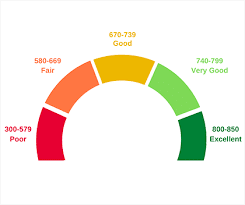A collection agency is a business that helps lenders or creditors get money from accounts that are past due or in default. A creditor often hires a collection agency after many failed attempts to collect its receivables. Also, a lender may give the job of collecting debts to a third party (the collection agency), an internal department, or a debt-collection subsidiary. Continue reading to gain a full understanding of how debt collection agency works and how to avoid them
How Does Debt Collection Agency Work
The kinds of debt that collection agencies typically collect are specialized. For instance, a collection agency might only pursue debts that are at least $300 in arrears and less than two years old.
A respectable firm will also restrict its activities to debt recovery within each state’s applicable statute of limitations. So when the debt is not too old, the creditor may still pursue it legally if it is still within the statute of limitations. A percentage of the money collected, usually between 25% and 50%, goes to the creditor as payment to the collector.
Furthermore, Credit card debt, medical debt, automobile debt, personal debt, business debt, student debt, and even unpaid electric and cell phone bills are all collected by debt collection agencies.
Some collection companies also work out settlement agreements with customers for less than the total amount owed on hard-to-collect debts. Debt collectors can also suggest cases to attorneys who sue clients who refuse to pay the collection agency.
What Does Collection Agency Do?
- Delinquent borrowers are contacted by debt collectors via letters and phone calls to persuade them to make good on their debt.
- Debt collectors use computer software and private investigators to conduct additional research when they are unable to contact the debtor using the information provided by the original creditor.
- They can also conduct searches for a debtor’s assets, such as bank and brokerage accounts, to assess their ability to repay.
- Collectors may notify credit bureaus of unpaid debts to persuade customers to make payments since unpaid debts can significantly lower a customer’s credit score.
- Even if the account numbers are known, a debt collector must rely on the debtor to pay their debt and cannot access a bank account without first obtaining a judgment. In other words, the court directs the debtor to pay a specific creditor a certain sum of money.
- To accomplish this, a collection agency must file a lawsuit against the debtor before the statute of limitations expires and obtain a ruling against them.
Note that this judgment permits a debtor’s bank and employer to begin withholding money from the debtor’s wages and bank accounts, but the debtor’s employer and bank must still be notified.
- Debt collectors will contact defaulting borrowers who have had judgments passed on them. This is because even after receiving a judgment, it may be difficult to get the money back.
- In addition to placing levies on bank accounts or automobiles, debt collectors may also attempt to place property liens on real estate or compel the sale of an asset.
Can You Ignore Collection Agencies?
You can ignore calls from debt collection agencies but it is not advisable to do so. It might make your situation much worse. The debt collector might submit a lawsuit for collection purposes, which could result in wage garnishment, the confiscation of property, or the withdrawal of funds from your bank accounts.
Also, they might contact your family, employer, or other people you listed as contacts when you applied for the credit. In the end, your credit score might still be impacted even if a debt collector stops calling, which would limit your future borrowing options.
What Happens If You Don’t Pay Collections?
Perhaps because there is no immediate benefit to paying off the debt other than ceasing to receive collection calls, many people don’t want to pay the collection agencies. However, be sure you understand the following repercussions of ignoring a debt that is in the collection.
#1. It affects your credit reports
Debt collectors report accounts to the credit bureaus, which can harm your credit score, but paying off the delinquent amount can provide some benefits. You can stop the harassing calls from the collectors, and a paid debt collection appears better on your credit report when applying for new credit.
While it’s important to periodically check your credit report for any account collections that might not be yours, if the collection is truly yours, it’s usually preferable to settle it and move on.
#2. You get lots of debt collector calls
A debt collector’s responsibility is to persuade you to pay your debt because they cannot turn a profit unless they are successful in doing so. Debt collectors will continuously contact you until you pay.
#3. It affects your credit report points.
Debt collections are a sign of delinquency, making you a riskier borrower and more likely to be turned down for a mortgage loan.
Regardless of whether you pay the collection or not, it remains on your credit report for the full allotted period. The collection will then be removed from your credit after that period has passed.
#4. It causes unpleasant interest rates
Your loan application might be accepted, but to make up for the higher risk of nonpayment, you’ll have to pay a higher interest rate.
#5. Unemployment
Debts on your credit report may prevent you from being hired, particularly for financial or upper-level management positions. Employers need your written consent before they can view your credit history as part of a background check. You could decline to give consent, but this is unlikely to improve your candidacy more than a bad credit history.
#6. It leads to lawsuits.
You may be sued by a creditor for any amount of debt. This is one reason why you should always talk to a good lawyer when a debt collector calls you. Keep in mind, however, that each state has a unique set of regulations governing debt collection.
Is It Worth Paying a Collection Agency?
It may feel painful when you give money to a collections agency. But when you owe what the collection agency is demanding, things are different.
Here are several advantages to paying a debt you owe if you’re on the fence about doing so.
To begin, it puts an end to collection calls permanently. Debt collectors may continue to contact you until the debt is taken care of. Secondly, although paying the collection will not automatically remove it from your credit report, but the money spent to bring the balance to zero may be well worth it if that debt was the only thing keeping you from needing a home or a car.
Furthermore, it improves your credit score. Paying a paid collection is better for your credit score than an unpaid one. It also removes the risk of getting sued
Finally, paying off a debt held by a collection agency is beneficial for your credit and finances, especially when you can afford it.
When Does Your Debt Go To The Collection Agency?
Your account will most likely be turned over to a collection agency or sold to a debt buyer if you disregard a creditor’s letters and phone calls. The term “assigned debt” refers to a situation where the creditor still owns the debt but transfers it to a collection agency under a contract to collect.
Instead, the debt could be “purchased debt,” which is when the creditor sells the debt to a collection agency. Credit card and phone debts are the debts that are most likely to be sold to a collection agency, followed by other utilities and medical debts.
What Happens If You Get Turned Into a Collection Agency?
Third-party businesses tasked with collecting past-due debts are known as collections agencies. They’ll try to convince you to repay the debt you owe by calling you and writing to you. If they are successful, they will receive a portion of the money recovered.
Having debt that is being collected means several things. First off, it shows you’re behind on payments and probably at least 120 days past due.
Also, it means that your creditor, which could be a bank, lender, or other business, has contacted a collections agency about your account.
You can respond politely when a collection agency contacts you once you understand how they function. For instance, you might choose to establish a payment schedule or try to negotiate a lower debt settlement amount.
However, make sure you weigh all of your options, including declaring bankruptcy, before engaging in any negotiations. You could also compel the debt collector to stop contacting you by using the law.
Why Should You Never Pay a Collection Agency
Your first instinct may be to pay a collection agency what they demand when you feel like they are harassing you. But paying a collection agency can affect how long it appears on your credit report, so it is not always in your best interest to do so.
This is because your credit report will have already suffered if you have an account that is in collections. Whether or not you pay the collection agency, collections will damage your credit and have a long-term effect.
What Is The Difference Between a Debt Collector and a Collection Agency?
Debt collection is the “in-house” pursuit of the debt, and it may take the form of emails, phone calls, or letters that are sent by the creditor. Larger businesses have a department that is in charge of collecting debts. Usually, this department gets involved 30 days after the payment is due.
If they are unable to reach an agreement with the debtor, they can either choose to pursue debt recovery through a third party or take their case to court.
A collection agency, on the other hand, is a third party acting on the creditor’s behalf to collect the debtor’s unpaid debt.
- Important Things to Know Before Refinancing Credit Card Debts (Refinansiering Av Kredittkort)
- Debt Consolidation Loans: Best Debt Consolidation Loans & Companies Updated!!!
- DEBT COLLECTION ATTORNEY: What They Do, Their Importance, and How to Hire One
- HOW TO START BUSINESS CREDIT: Step-By-Step Guide






